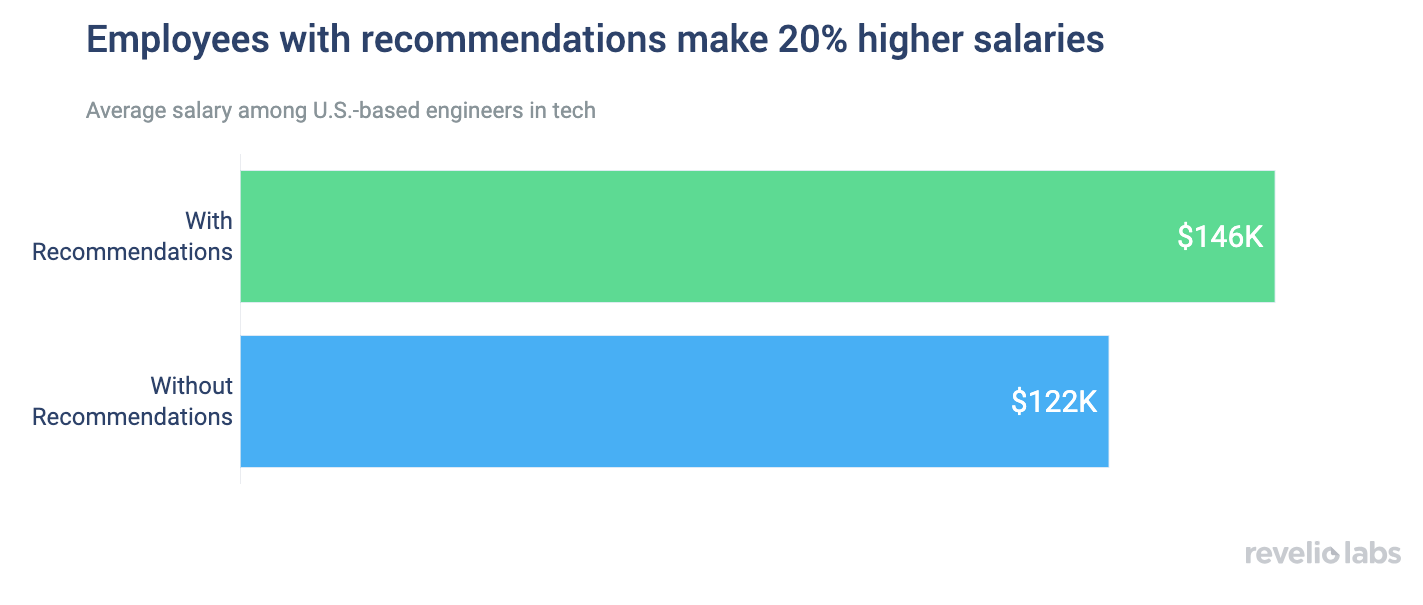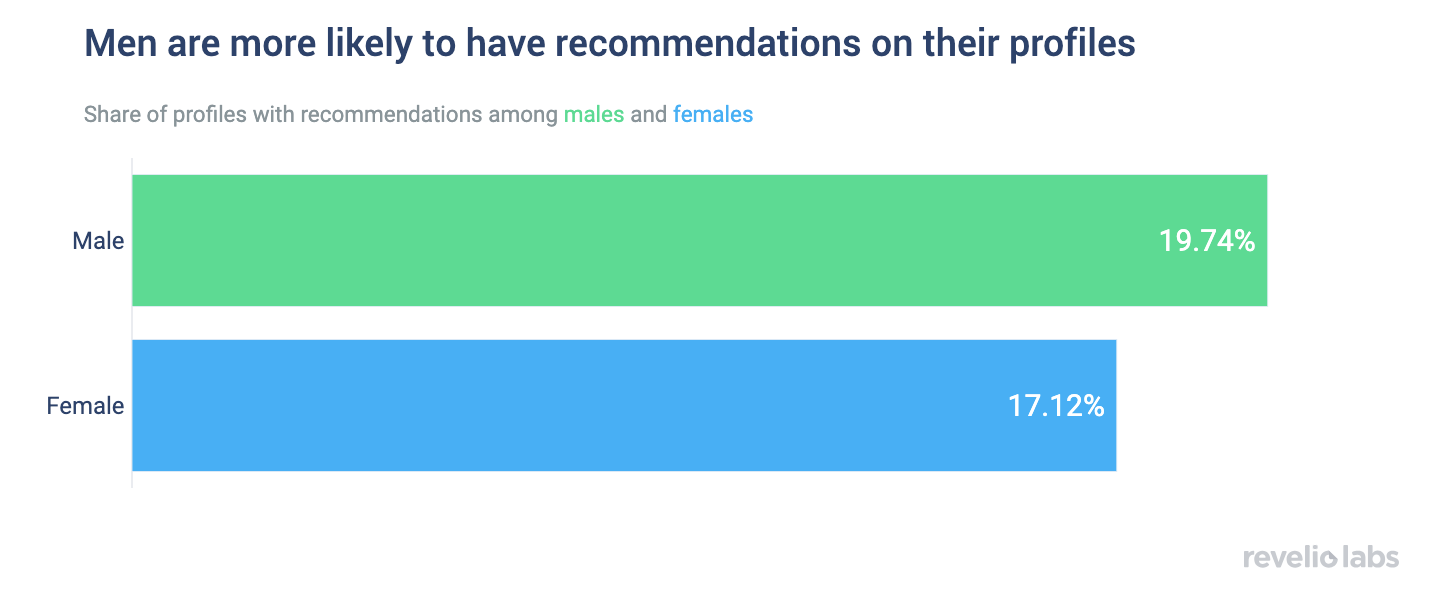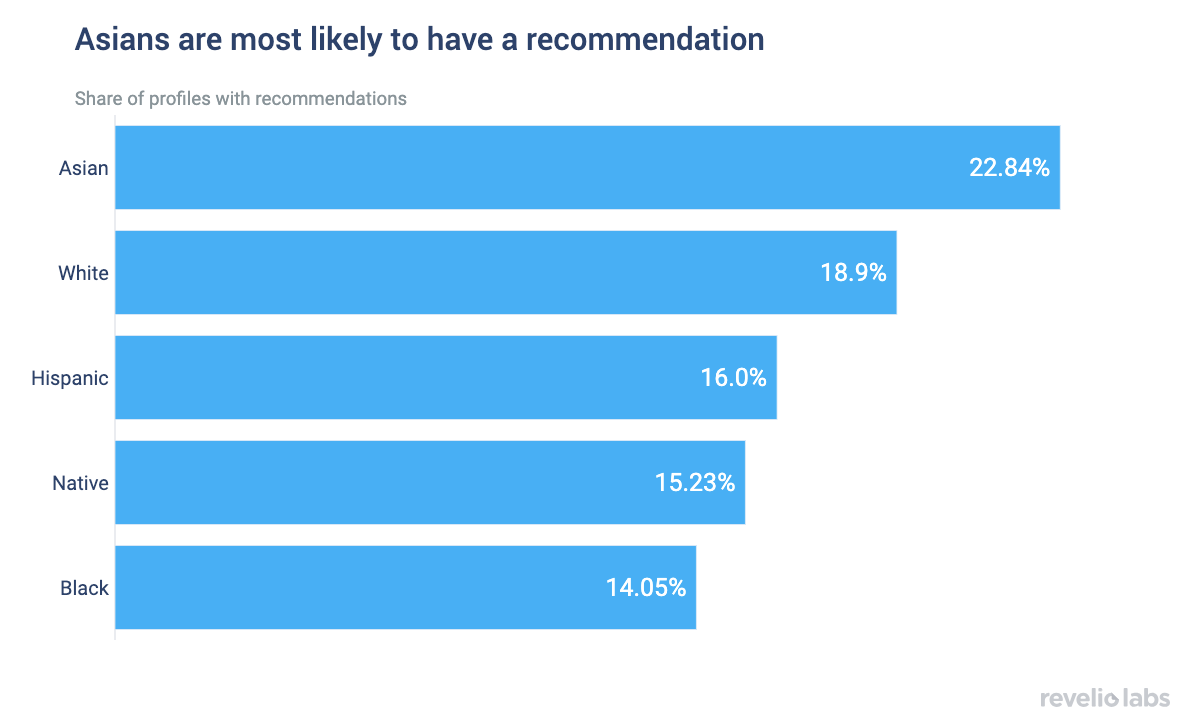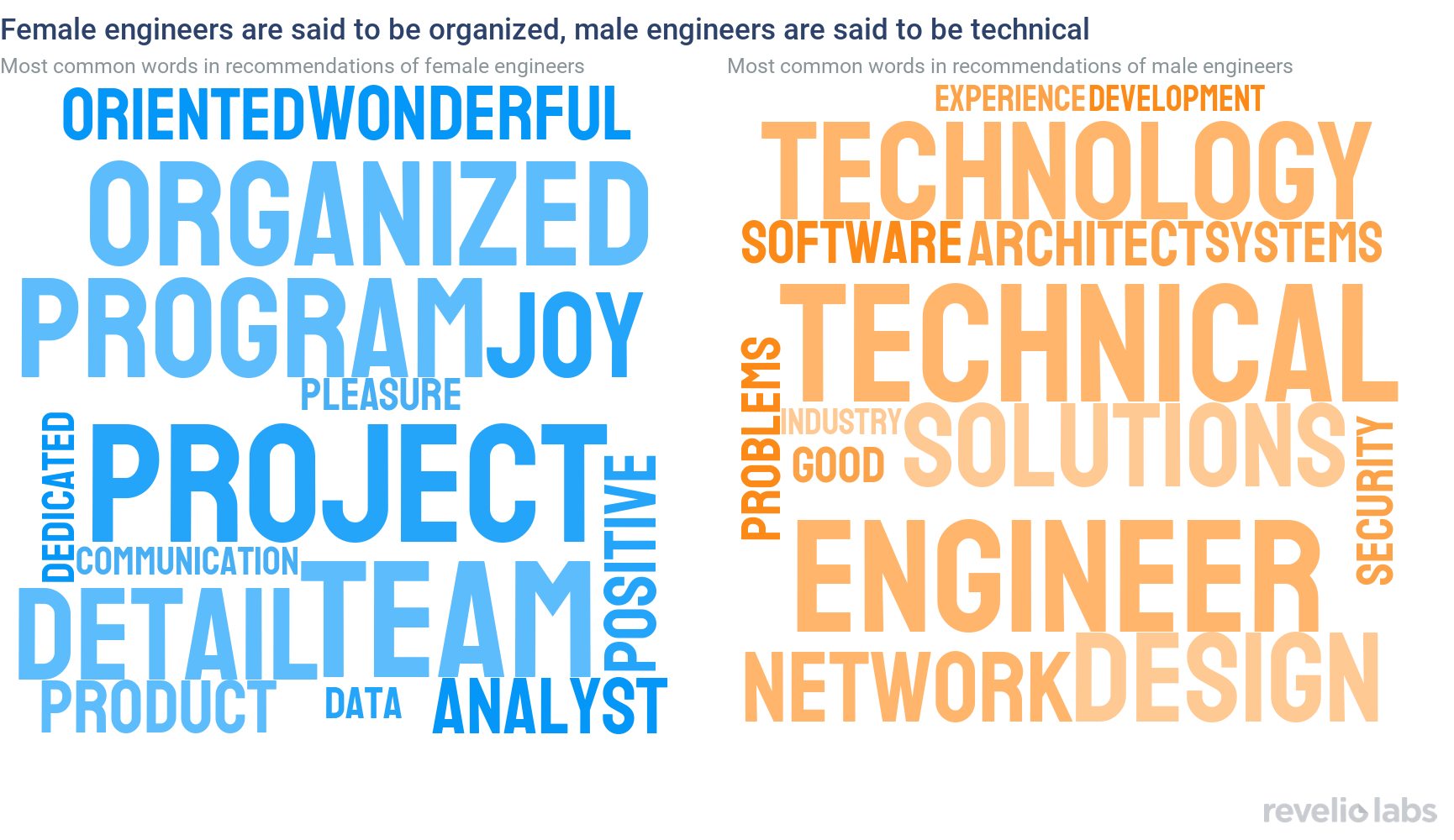Women Are “Wonderful,” Men Provide “Solutions.” Bias in Employee Recommendations Is Real
Happy early International Women's Day!

Recommendations from former employers or colleagues are regarded as a positive signal: Engineers with recommendations on their public profiles earn on average 20% more than those without.
Men are more likely to have a recommendation on their profile compared to women.
The language used in recommendations for men and women differs widely even for the same roles: Female engineers are most commonly described as “organized” and “team players,” while men are often recommended for being “technical” and “solutions-oriented.”
The hiring process is a problem of decision-making under imperfect information. Employers do not know whether a candidate can excel in the position, whereas candidates have a better understanding of their abilities. The goal of the interview process is to eliminate some of the inherent information asymmetries between candidates and employers. The candidate provides the employer with signals about their skills and aptitudes, via resumes, transcripts, or project portfolios. Employers use interviews or hiring assignments to elicit further information about candidates.
Another frequently used tool to better understand the candidate’s ability is recommendations: the opinions of former employers about a candidate. Professional online platforms enable workers to publish recommendations written by their former bosses or coworkers. Does having a recommendation present a positive signal that can influence the outcomes of the hiring process?


When we compare the average earnings of engineers in the US using our HR data analytics, we find that engineers with at least one recommendation on their profile have on average 20% higher salaries than those without one. While this difference in salary may result from the selection of employees into asking for a public recommendation, it is a positive selection. That is to say, high-ability workers with more skills or motivation seem to be more likely to have a recommendation.
Who is more likely to have a recommendation on their profile? We find that men are more likely to have a recommendation on their profile: 20% of male engineers have at least one recommendation, while only 17% of female engineers do. This is also true when we control for the number of connections, as men tend to have greater numbers of connections on average. Even for profiles with an equal number of connections, women tend to have fewer public recommendations. This finding is consistent with previous research showing that women are less likely to ask for what they need or promote their own interests at work.


Sign up for our newsletter
Our weekly data driven newsletter provides in-depth analysis of workforce trends and news, delivered straight to your inbox!
We also find that the propensity to have a recommendation is unevenly distributed across ethnicities. Interestingly, Asian engineers are most likely to have a recommendation on their profiles, followed by White engineers. Black and Native American engineers are the least likely to have a recommendation on their profile.


The content of recommendations varies a lot across different profiles. We know from our previous research that women use different words to describe themselves in their bios. When studying the language of recommendations using our HR data analytics, we noticed that recommendations for women read very differently from those of men. To hold constant any occupation-related differences, we only look at recommendations for engineers. The difference in language between recommendations for male and female engineers is baffling. The most used words to praise female engineers are “team,” “organize,” and “detail.” Words like “joy” and “wonderful” also appear frequently in female recommendations. Men, on the other hand, are praised for “technology,” “solution,” and “experience.”

There we have it - yet another gender gap. Happy early International Women's Day!

